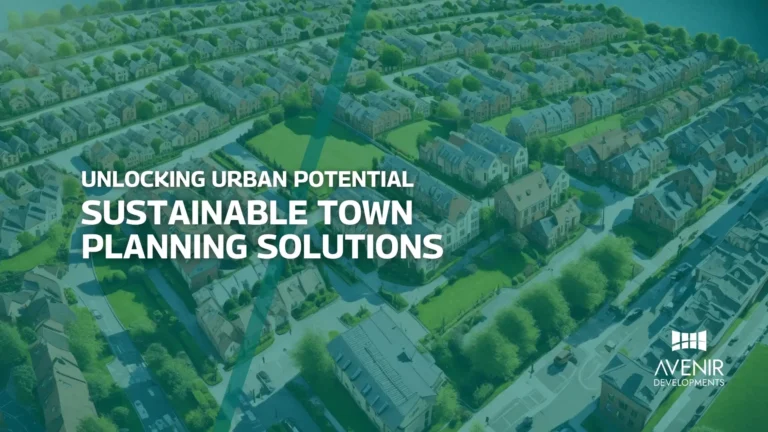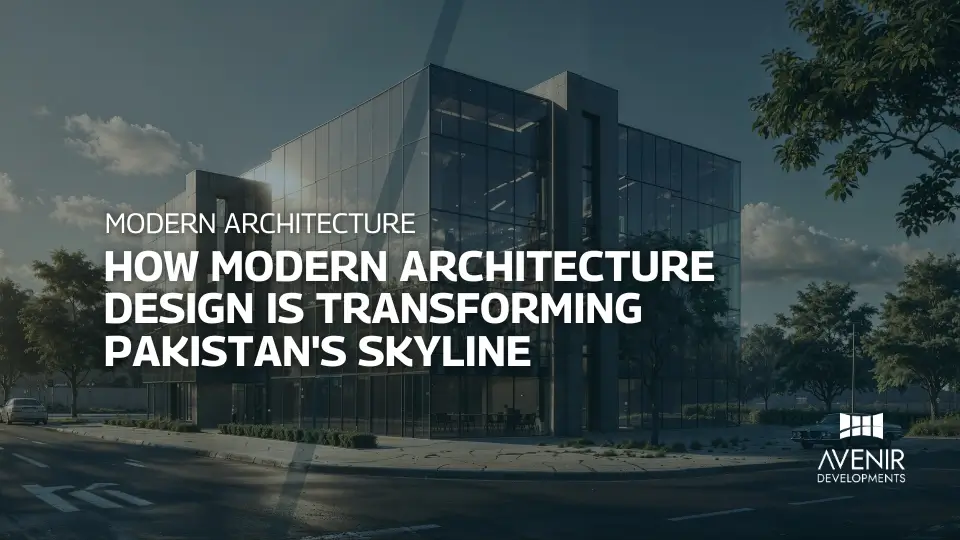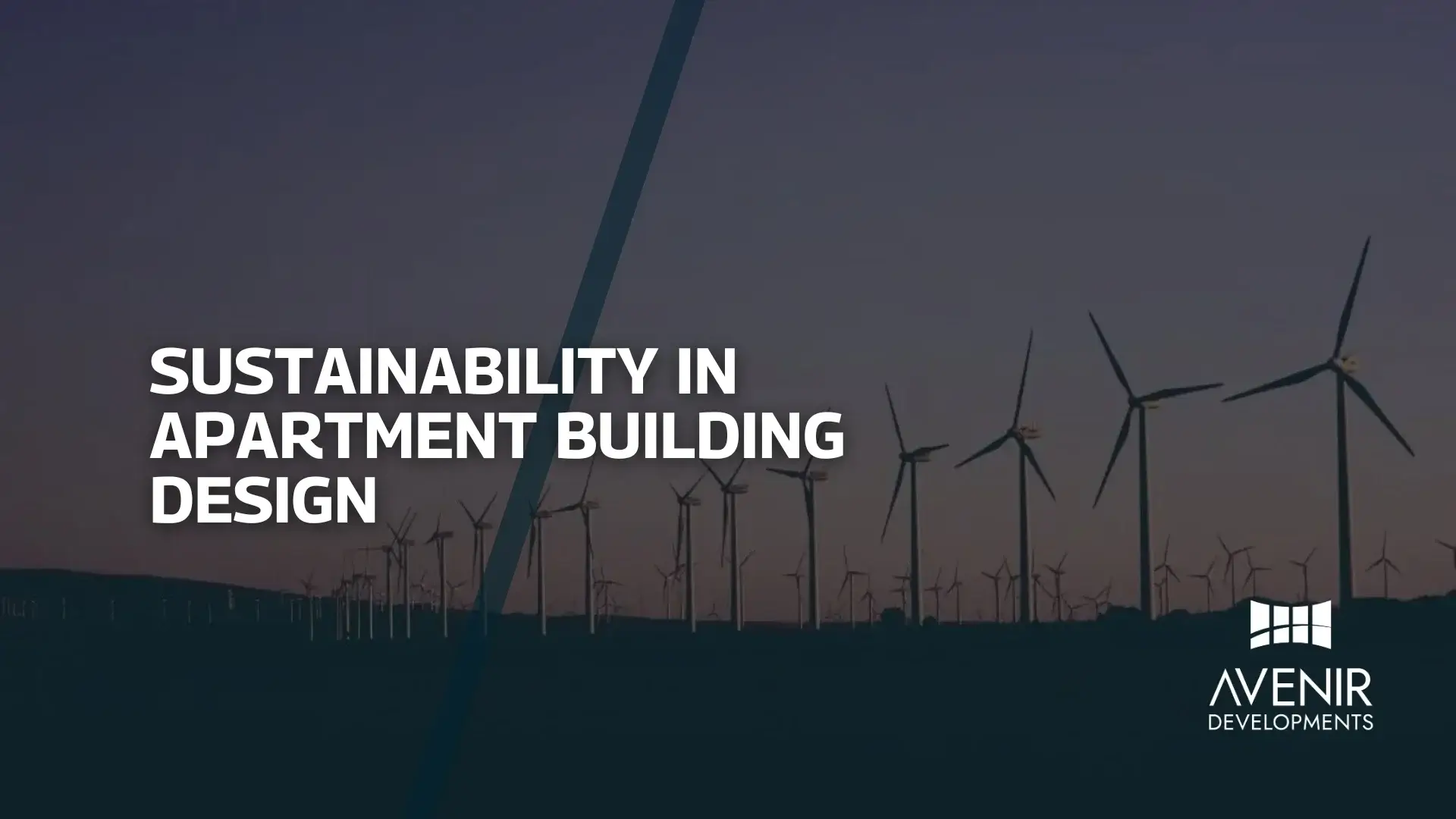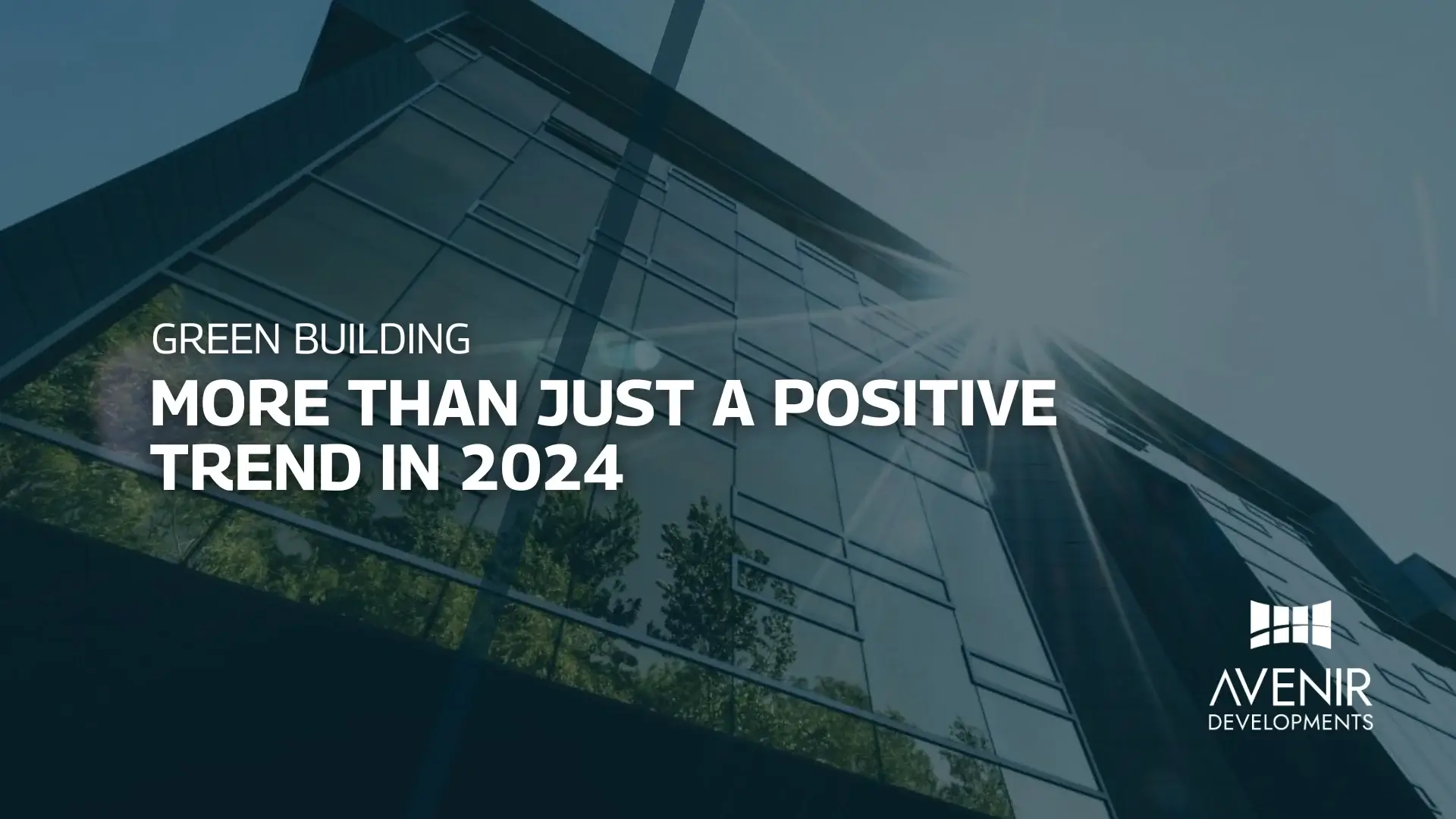In a world grappling with the pressing challenges of climate change, urbanization, and resource scarcity, Sustainable Town Planning Solutions have emerged as a critical solution. By integrating environmental considerations, social equity, and economic viability, sustainable town planning aims to create livable, resilient, and equitable urban environments. As an experienced architect, interior designer, and custom home builder with a passion for sustainable design, I have witnessed firsthand the transformative power of well-planned communities. In this comprehensive article, we will delve into the intricacies of sustainable town planning, exploring its definition, historical evolution, current trends, and practical applications.
Sustainable Town Planning Solutions
Sustainable town planning, at its core, is the process of designing and developing urban areas that minimize their negative impact on the environment while promoting social equity and economic prosperity. It encompasses a wide range of strategies, from energy-efficient infrastructure to green spaces and sustainable transportation systems. The goal is to create communities that are not only environmentally friendly but also resilient, inclusive, and adaptable to future challenges.
The concept of sustainable town planning has evolved over time, influenced by various factors, including the industrial revolution, rapid urbanization, and growing environmental concerns. In recent decades, there has been a significant shift towards more sustainable practices, driven by a recognition of the interconnectedness between human activities and the natural environment.

Key Elements of Sustainable Town Planning:
- Environmental Sustainability: Reducing the ecological footprint of urban areas through measures such as energy efficiency, water conservation, waste management, and green infrastructure.
- Social Equity: Ensuring that all residents have access to essential services, affordable housing, and opportunities for economic growth.
- Economic Viability: Promoting sustainable economic development that supports the long-term well-being of the community.
The Importance of Sustainable Town Planning:
Sustainable town planning is essential for addressing the pressing challenges of our time. It helps to mitigate the impacts of climate change, reduce pollution, and conserve natural resources. Additionally, it promotes public health, improves quality of life, and fosters social cohesion.
By investing in sustainable town planning, we can create a more resilient and equitable future for generations to come.
Current Trends and Developments in Sustainable Town Planning
Sustainable town planning is a rapidly evolving field, with new trends and developments emerging all the time. Here are some of the most significant current trends:
1. Green Infrastructure:
- Urban Forests and Green Spaces: Increasing the amount of green space in cities to improve air quality, reduce stormwater runoff, and provide habitat for wildlife.
- Green Roofs and Walls: Incorporating vegetation on rooftops and building facades to enhance energy efficiency, reduce heat island effect, and improve aesthetics.
2. Smart Cities:
- Technology-Driven Solutions: Leveraging technology to optimize resource management, improve transportation efficiency, and enhance citizen engagement.
- Data-Driven Decision Making: Using data analytics to inform planning decisions and identify areas for improvement.
3. Circular Economy:
- Waste Reduction and Recycling: Implementing strategies to reduce waste generation and maximize resource recovery.
- Reusing and Repurposing Materials: Promoting the use of recycled and reclaimed materials in construction and infrastructure projects.

4. Affordable Housing:
- Inclusive Communities: Developing affordable housing options that are integrated into existing neighborhoods, promoting diversity and social equity.
- Sustainable Design: Incorporating sustainable design principles into affordable housing projects to reduce operating costs and improve energy efficiency.
5. Transit-Oriented Development (TOD):
- Compact, Walkable Communities: Creating dense, mixed-use developments centered around public transportation hubs.
- Reducing Car Dependency: Encouraging the use of public transportation, cycling, and walking to reduce traffic congestion and greenhouse gas emissions.
Recent Government Initiatives in Pakistan:
The Pakistani government has taken significant steps to promote sustainable urban development. Some notable initiatives include:
- Clean Green Pakistan Initiative: A comprehensive plan to address environmental challenges and promote sustainable development.
- National Housing Policy: A framework for providing affordable housing to low-income families and promoting sustainable urban development.
- Renewable Energy Policy: A focus on expanding renewable energy sources to reduce dependence on fossil fuels.
International Initiatives:
In addition to domestic efforts, Pakistan is also participating in several international initiatives aimed at promoting sustainable urban development. These include:
- United Nations Sustainable Development Goals (SDGs): A global framework for sustainable development that includes goals related to cities and communities.
- Global Covenant of Mayors for Climate and Energy: A network of cities committed to reducing greenhouse gas emissions and promoting sustainable development.
Recommendations for Action:
To further advance sustainable town planning in Pakistan, the following actions are recommended:
- Strengthening Policy Frameworks: Developing and implementing comprehensive policies and regulations that support sustainable urban development.
- Investing in Research and Development: Supporting research and innovation in sustainable technologies and practices.
- Promoting Public-Private Partnerships: Encouraging collaboration between the government, private sector, and civil society to implement sustainable projects.
- Raising Awareness: Increasing public awareness of the importance of sustainable town planning and engaging citizens in decision-making processes.
By adopting these strategies, Pakistan can create more sustainable, resilient, and equitable urban environments for its citizens.
Frequently Asked Questions About Sustainable Town Planning
Q: What are the benefits of sustainable town planning for communities?
A: Sustainable town planning offers numerous benefits for communities, including:
- Improved health and well-being: Access to green spaces, clean air, and safe transportation options can enhance physical and mental health.
- Increased property values: Sustainable communities are often more desirable, leading to higher property values.
- Reduced operating costs: Energy-efficient buildings and infrastructure can lower operating costs for both residents and businesses.
- Enhanced resilience: Sustainable communities are better prepared to withstand natural disasters and other challenges.
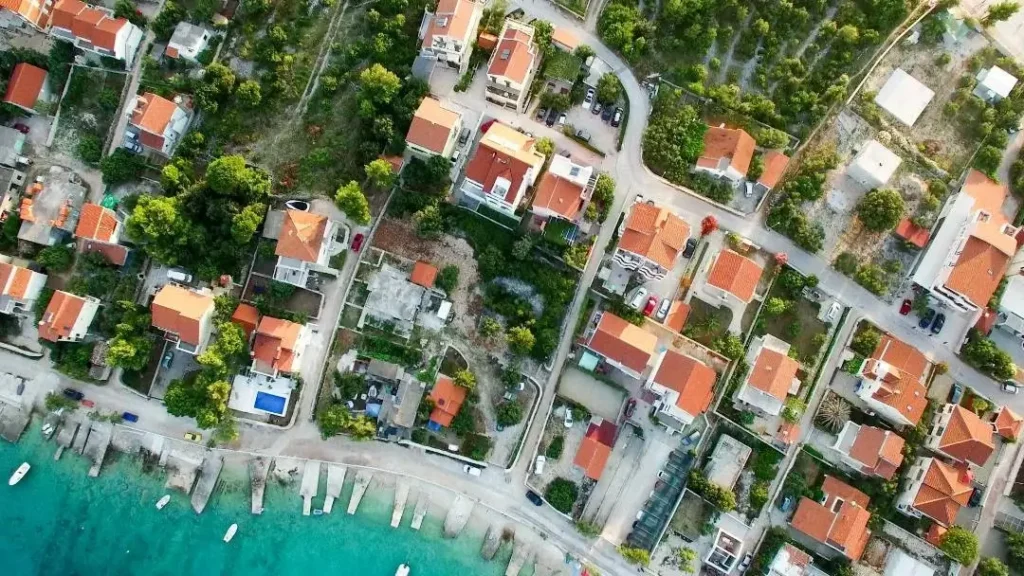
Q: How can sustainable town planning be implemented in existing communities?
A: Sustainable town planning can be implemented in existing communities through a variety of strategies, such as:
- Retrofitting buildings: Upgrading existing buildings to make them more energy-efficient and sustainable.
- Improving public transportation: Expanding public transportation options to reduce car dependency.
- Creating green spaces: Adding parks, gardens, and other green areas to the community.
- Implementing smart city technologies: Using technology to improve resource management and enhance sustainability.
Q: What are the challenges of sustainable town planning?
A: Sustainable town planning can face several challenges, including:
- High upfront costs: Implementing sustainable practices can require significant initial investments.
- Lack of political will: Government support is essential for successful sustainable development initiatives.
- Resistance from stakeholders: Some stakeholders may oppose changes to the status quo.
- Limited technical expertise: There may be a shortage of professionals with the necessary skills to implement sustainable practices.
Q: How can we ensure that sustainable town planning benefits all members of the community?
A: To ensure that sustainable town planning benefits all members of the community, it is important to:
- Engage with stakeholders: Involve residents, businesses, and other stakeholders in the planning process.
- Prioritize equity: Ensure that sustainable development benefits all segments of the population, including low-income and marginalized communities.
- Monitor and evaluate: Regularly assess the effectiveness of sustainable town planning initiatives and make adjustments as needed.
Q: What role can citizens play in promoting sustainable town planning?
A: Citizens can play a crucial role in promoting sustainable town planning by:
- Voting for elected officials who support sustainable policies: Supporting candidates who prioritize sustainable development.
- Participating in community planning processes: Getting involved in local planning initiatives and sharing their ideas.
- Reducing their own environmental impact: Making sustainable choices in their daily lives, such as conserving energy, water, and resources.
- Supporting local businesses that prioritize sustainability: Patronizing businesses that are committed to environmental protection and social responsibility.
By working together, citizens and governments can create more sustainable and equitable communities for all.
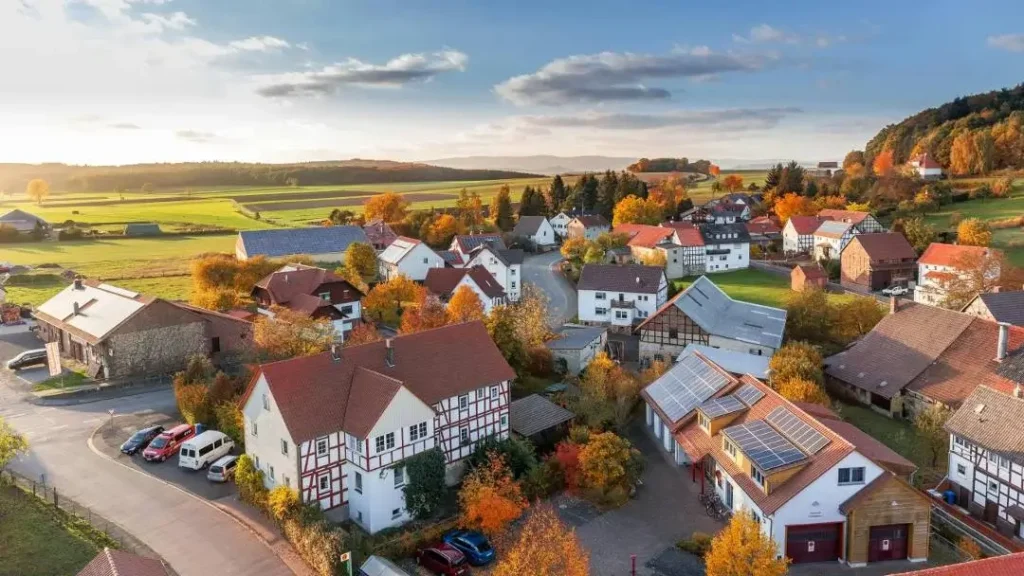
Expert Tips for Sustainable Town Planning
As an experienced architect, interior designer, and custom home builder, I have gained valuable insights into the challenges and opportunities of sustainable town planning. Here are some expert tips for creating sustainable communities:
1. Prioritize walkability and bikeability: Design communities that are easy to navigate on foot or by bicycle, reducing reliance on cars and promoting active transportation.
2. Incorporate green infrastructure: Integrate green spaces, such as parks, gardens, and green roofs, into the urban fabric to improve air quality, manage stormwater, and provide habitat for wildlife.
3. Promote energy efficiency: Use energy-efficient building materials and technologies to reduce energy consumption and greenhouse gas emissions.
4. Encourage sustainable transportation: Invest in public transportation, bike lanes, and pedestrian-friendly infrastructure to encourage sustainable modes of transportation.
5. Manage waste effectively: Implement waste reduction, recycling, and composting programs to minimize the environmental impact of waste disposal.
6. Prioritize affordable housing: Ensure that housing is affordable for all residents, promoting social equity and reducing displacement.
7. Foster community engagement: Involve residents in the planning process to create a sense of ownership and ensure that the community’s needs are met.
8. Consider climate change adaptation: Design communities to be resilient to climate change impacts, such as extreme weather events and rising sea levels.
9. Support local businesses: Encourage the development of local businesses to create jobs, reduce reliance on imports, and strengthen the local economy.
10. Monitor and evaluate: Regularly assess the effectiveness of sustainable town planning initiatives and make adjustments as needed.
By following these tips, communities can create sustainable, livable, and equitable environments that benefit both residents and the planet.
Sustainable town planning is essential for addressing the pressing challenges of our time. By integrating environmental considerations, social equity, and economic viability, we can create communities that are resilient, inclusive, and adaptable to future challenges.
In this article, we have explored the key elements of sustainable town planning, current trends and developments, frequently asked questions, and expert tips. I encourage you to take action and support sustainable town planning initiatives in your community. By working together, we can build a more sustainable and equitable future for generations to come.
Ready to create a sustainable community? Contact Avenir Developments today for expert consultation and services in sustainable town planning. Our team of experienced architects, interior designers, and custom home builders can help you design and develop communities that are both environmentally friendly and socially responsible.
Contact us at:
- WhatsApp or Call: +923001101103
Let’s work together to build a greener, healthier, and more equitable future.
Read More: Sustainability in Apartment Building Design for 2024

